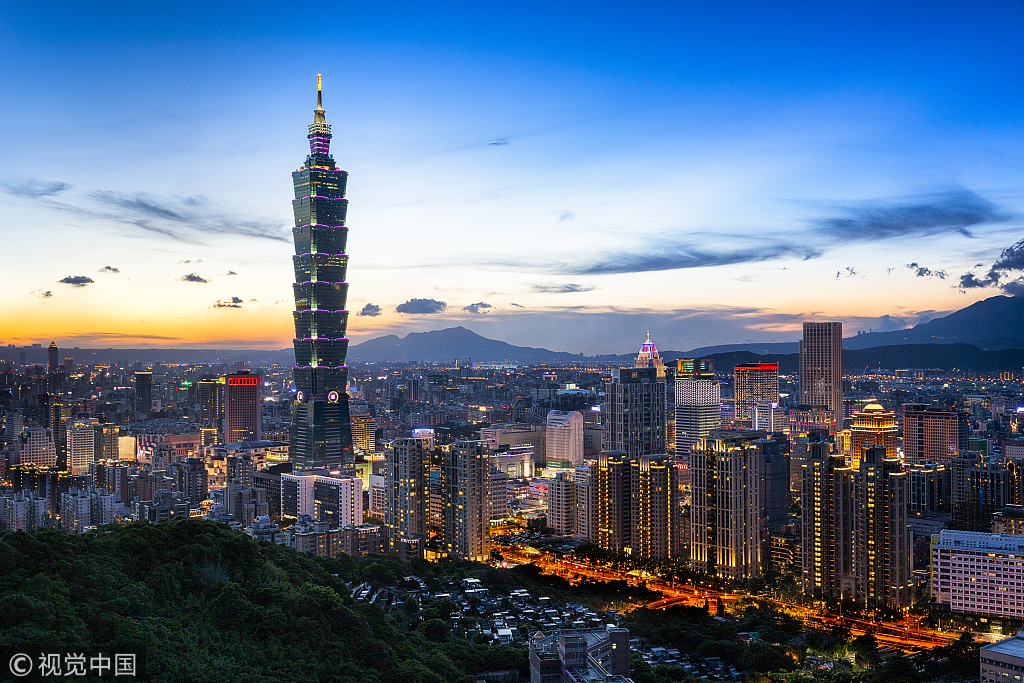Tsai slandering mainland to gain advantage in election
By Wang Shushen | China Daily | Updated: 2019-12-19 07:17

The election for the next leader of Taiwan on Jan 11 will, to a large extent, determine the political climate on the island and cross-Straits relations in the next four years. Given the trade disputes between China and the United States, and the fact that the Taiwan authorities have willingly become a tool in US hands, the significance of the election cannot be overstated.
With less than a month to go for the election, the contest between the ruling Democratic Progressive Party and Kuomintang candidates has intensified. The current island leader Tsai Ingwen's performance on the economic, social and political fronts has been poor by any standards-as evident in the stagnant economy, worsening cross-Straits ties and shrinking space for international activities-doesn't bode well for her party. And the DPP's crushing defeat in the local elections last year reflects Taiwan residents' strong discontent with the Tsai administration.
To cover up Tsai's poor governance, the "pro-independence" DPP has been making desperate efforts to shift the focus to the "ideological" confrontation with the Chinese mainland by claiming to uphold "sovereignty" and "national security" of the island.
The DPP is playing the "mainland-meddling-in-polls" card again to lead the Taiwan residents astray and get their votes. First, the Tsai authorities will try to gain popular support by further intensifying cross-Straits tensions. Since the local elections last year, the Tsai administration has been manufacturing fake news accusing the mainland of funding some candidates.
Similarly, by playing the "mainland-meddling" card this time, the Tsai administration is trying to instill in Taiwan residents a sense of fear and hatred toward the mainland, in order to get their support and win the Jan 11 election. Besides, the DPP has claimed that the"26 measures" Beijing has implemented to, among things, accord equal treatment to Taiwan compatriots, are evidence of the mainland meddling in the island's election.
The fact is, that being aware of the political sensitivity of the Taiwan election, Beijing has always kept a distance from it. Still, the Tsai authorities have been alleging that Beijing poses a threat to the island. Which is a lie that has long been exposed.
Second, by manufacturing fake news about Beijing meddling in the island's election, the DPP has been trying to further restrict cross-Straits exchanges. And in the name of "defending Taiwan against the mainland", the Tsai administration has been raising cross-Straits tensions during its election campaign.
The Taiwan administration has introduced and revised a torrent of laws and regulations aimed at further damaging cross-Straits exchanges and is building a "fence against the mainland's infiltration", sparking a wave of protests on the island. Tsai and the DPP have been manufacturing fake news about Beijing interfering in Taiwan election to create favorable conditions to pass an "anti-infiltration law" in the future.
And third, the Tsai administration has been blaming the mainland for all its ills with the aim of helping the US to strengthen its Indo-Pacific strategy to contain Beijing's rise. Since identifying Beijing as its chief strategic rival, Washington has taken many measures to contain it's rise, from launching a trade war to creating trouble in the South China Sea to interfering in the Xinjiang Uygur autonomous region and the Hong Kong Special Administrative Region.
And in all this, the United States has been using Taiwan, with the not-so-tacit support of the Tsai administration, against the mainland. For instance, without any evidence, the American Institute in Taiwan has claimed that the mainland is influencing Taiwan politics including meddling in the island's election. This prompted the Tsai authorities to initiate a dialogue with the US that led to the two sides launching cybersecurity exercises.
Actually, it is the US that is meddling in the Taiwan election. As the chairman of Taipei Forum Foundation Su Chi said, the US is more deeply involved in Taiwan election as its executive branches, Congress and think tanks have all voiced support for Tsai.
Washington wants Tsai to continue playing the role of a pawn on the geopolitical chessboard of the US to contain Beijing's rise.
The author is a researcher at the Institute of Taiwan Studies, Chinese Academy of Social Sciences. The views don't necessarily represent those of China Daily.
























